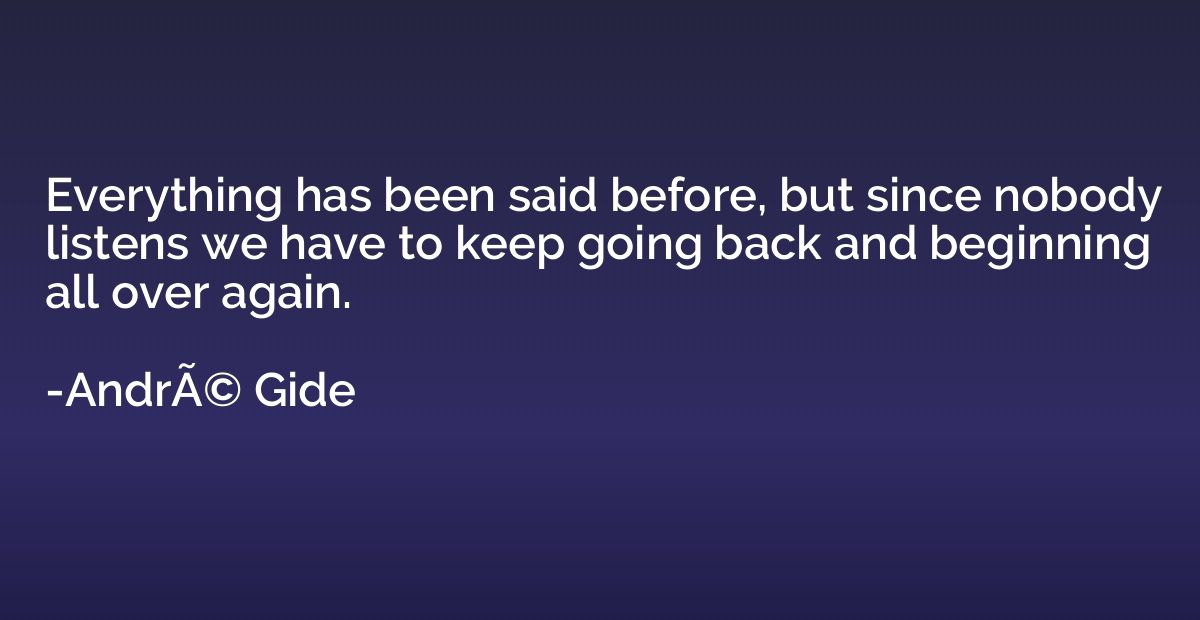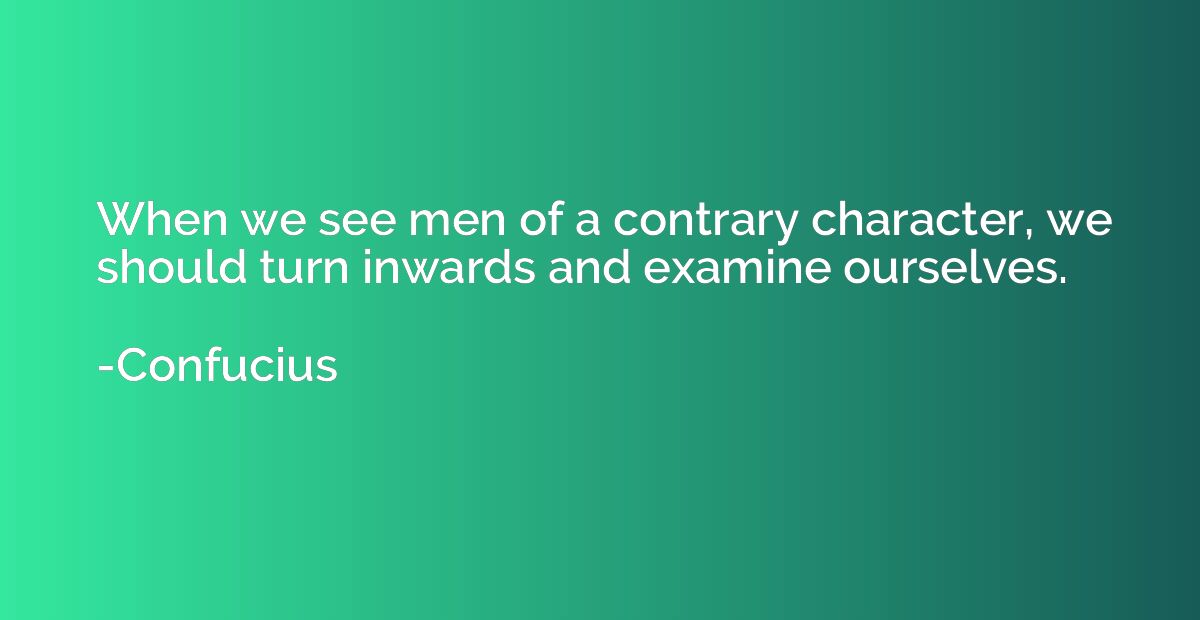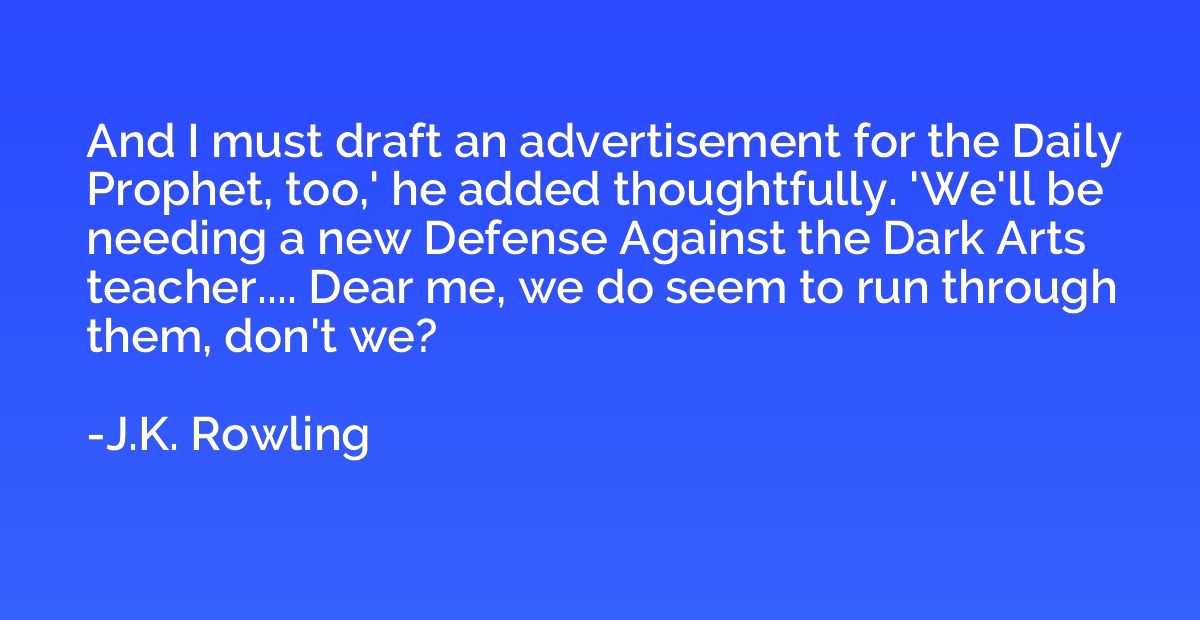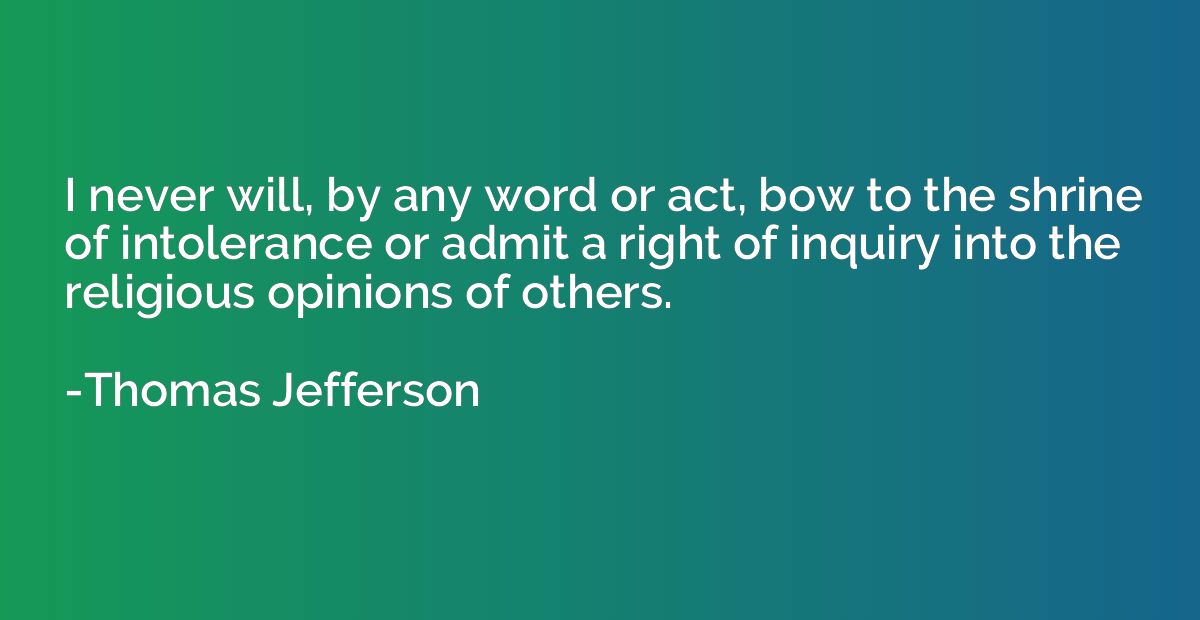Quote by André Gide
Everything has been said before, but since nobody listens we have to keep going back and beginning all over again.

Summary
This quote highlights the cyclical nature of human knowledge and communication. It suggests that despite the vast repository of information and wisdom that already exists, people often fail to truly listen or understand it. As a result, there is a continuous need to reintroduce and restate what has already been said in the hopes that someone will finally pay attention. It emphasizes the importance of perseverance and the ongoing struggle to make others comprehend ideas that are not entirely new but are largely ignored or misunderstood.
Topics
Experience
By André Gide














